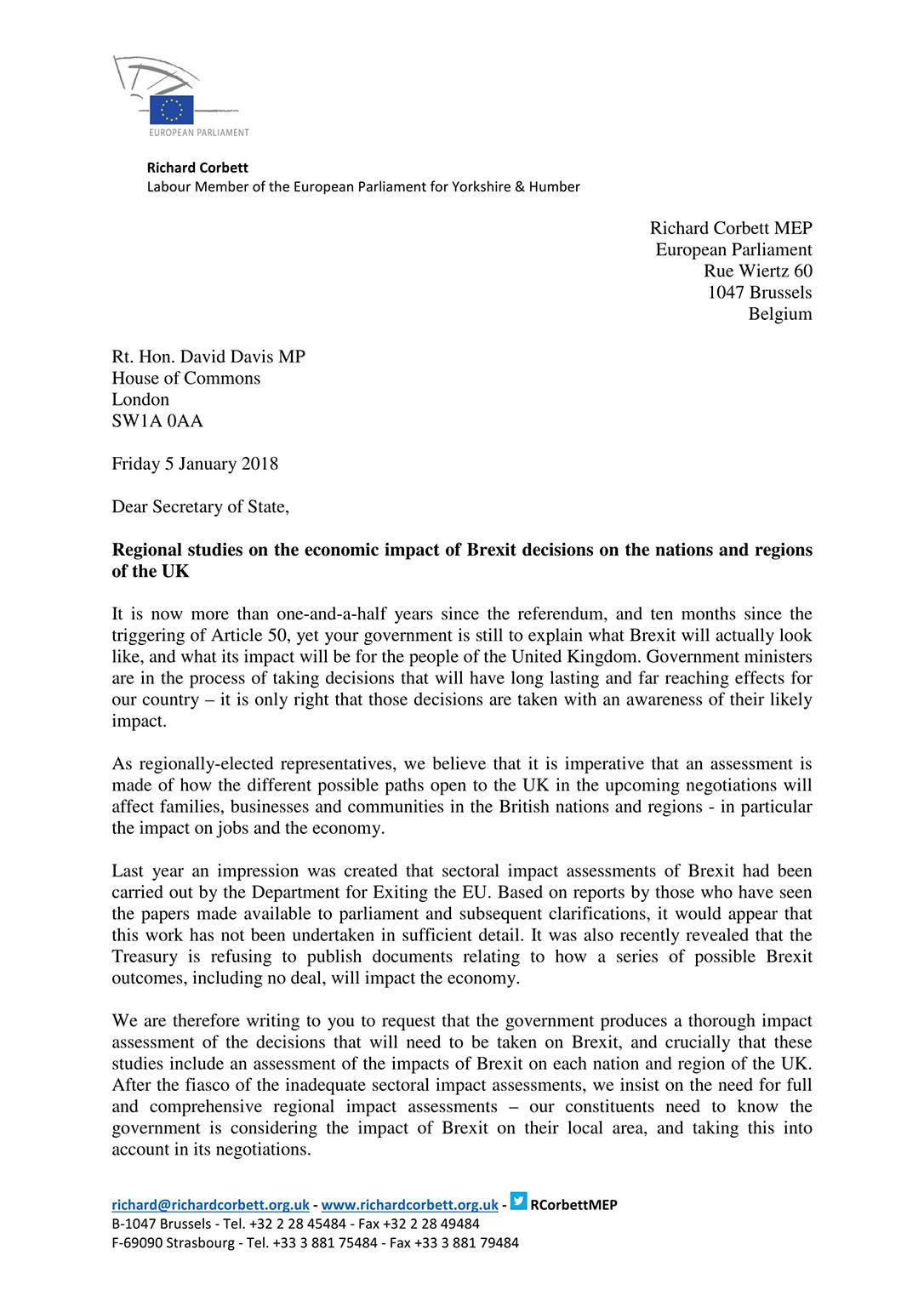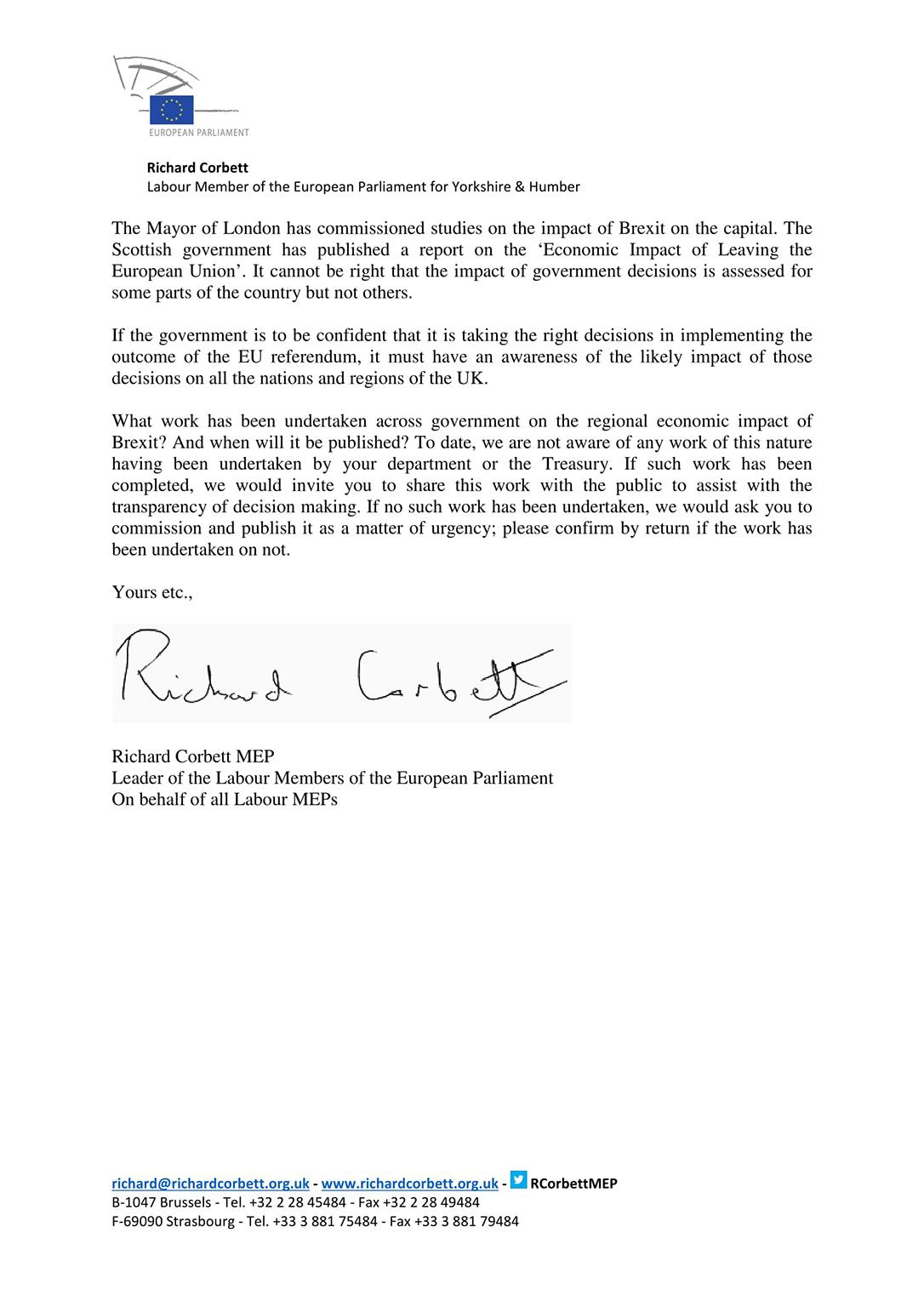Brexit: Labour's European Parliament leader demands regional impact assessments from David Davis
Exclusive: Richard Corbett says the studies are needed after the 'fiasco of the inadequate sectoral impact assessments'

Labour’s leader at the European Parliament has written to David Davis to demand regional Brexit impact assessments, The Independent can reveal.
Richard Corbett MEP has called on the Brexit Secretary to take action after what he described as the “fiasco of the inadequate sectoral impact assessments”.
Mr Corbett criticised the Government’s approach, saying there was still no explanation of what Brexit would look like and that decisions were being taken without “an awareness” of the consequences.
“After the fiasco of the inadequate sectoral impact assessments, we insist on the need for full and comprehensive regional impact assessments – our constituents need to know the government is considering the impact of Brexit on their local area, and taking this into account in its negotiations,” Mr Corbett said in his letter.
The Mayor of London has commissioned studies to look into the effects of Brexit on the capital and the Scottish government has already published their report on the economic impact of Britain leaving the EU.
Mr Corbett said it “cannot be right” that some parts of the country have impact assessments and others do not.
“If the government is to be confident that it is taking the right decisions in implementing the outcome of the EU referendum, it must have an awareness of the likely impact of those decisions on all the nations and regions of the UK,” he said.


Rory Palmer, Labour MEP for the East Midlands, said people had the “right to know” about the impact of Brexit and what it will mean for their livelihood.
“The government is taking decisions about Brexit without assessing its impact on my constituency of the East Midlands, or anywhere,” Mr Palmer told The Independent.
“Following the chaos and confusion of the sectoral impact assessments that weren’t, the Brexit department or, if it is incapable of doing so, the Treasury, must commission analysis on the consequences for each UK region and nation.
“People and businesses throughout Britain have a right to know what government decisions will mean for their jobs, their livelihoods, their futures – ministers must put consideration of them at the heart of its decisions.
“The bottom line is we need to know what will happen to us outside the EU. It is now more than one-and-a-half years since the referendum, and ten months since the triggering of Article 50 – the government cannot allow the chaos, uncertainty and confusion around Brexit to continue.
“People and businesses in every part of our country, in every region, in every community, need to know that the government is making decisions on the future with them in mind,” he added.
Independent research that has looked into the effects of Brexit on regions across the UK found that the South West had the largest share of local GDP exposed to Britain leaving the European Union.
A total of 13.7 per cent of the aggregate economy in the South West would be affected by Brexit, with the West Midlands and the North West not far behind with 13.5 per cent of their local economy exposed.
Of all the sub-regions in the country Cumbria was worst affected with a total of 16.3 per cent of their economy under threat once Brexit is finalised.
A DExEU spokesperson said: “We are undertaking a comprehensive programme of analytical work across a range of scenarios. This work is ongoing.
“We are committed to securing a good deal with the EU that works for the whole of the UK, through a bold and ambitious Free Trade Agreement.
”We are engaging extensively with businesses and organisations across the country, and will continue this work throughout the exit process.”
Join our commenting forum
Join thought-provoking conversations, follow other Independent readers and see their replies
Comments